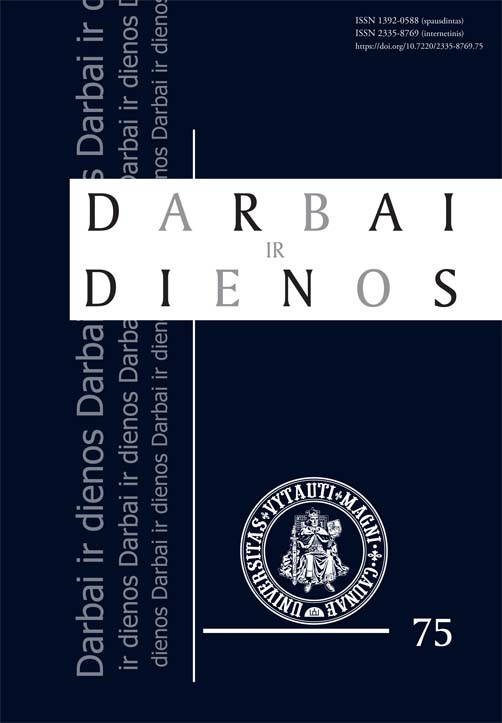Vytauto kavolio egologija: kelios įžvalgos
Some Insights into the Egology of Vytautas
Author(s): Arūnas SverdiolasSubject(s): Philosophy, Existentialism
Published by: Vytauto Didžiojo Universitetas
Keywords: Kavolis; Egology; Transcendence; Fellowship; Solidarity; Ego; Civilization; Meaning;
Summary/Abstract: This article discusses Vytautas Kavolis’s essential philosophical questions related to his self-understanding and making sense of himself through the passion of pain and the sense of inner emptiness or, in other words, the grounding of oneself in nothing. Such a conscious position of Kavolis makes him similar to Sartre. His self-understanding is based on conceptions of duty and loyalty, which together with empathy and memory are thought of as the most important ties of human community. The sense of emptiness likens Kavolis’s thought to that of the Lutheran mystic Jakob Böhme, who identified God with emptiness or non-being. Emptiness is associated with transcendence, which is explained as the lifting of everything into the unknown. It is only through its relationship with the unknown that the ego is formed. Transcendence, community, solidarity, and the ego being formed go into one knot. To be sure, the ego is reflected on in distinct cultures and distinct civilizations. Ego as one‘s I is defined through its difference from other possibilities in other civilizations. A distant other in which the ego is not reflected because it is different is distinguished from a neighboring other, from something that is not one‘s alter ego. Ego is presented on the same level with civilization; such seemingly incomparable things are joined together by a totality of meaning. On the one hand, there’s the ego or I myself as the source and configuration of meaning; on the other, there’s such a giant area as civilization. The possibility of comparing one‘s I with civilization is held to be the furthest point of Kavolis’s theory.
Journal: Darbai ir dienos
- Issue Year: 2021
- Issue No: 75
- Page Range: 65-70
- Page Count: 6
- Language: Lithuanian

